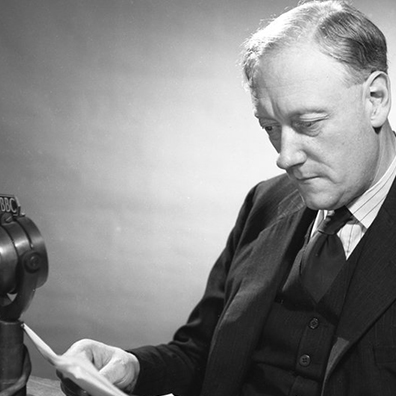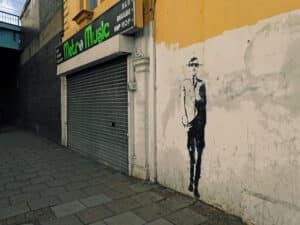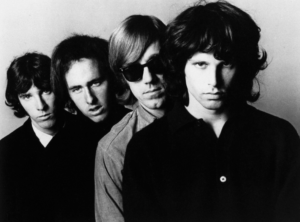

After you check into a room, you probably spend a bit of down time before you go out again. Chances are that you never even give a second thought to what room you are in—you are already in it so why think about it?
Had you checked in during the late afternoon, after you rest you most likely go out for errands, a walk, dinner, etc. When you return, you probably don’t even have to glance at the little paper holder that the key-card came in to get the correct number—you simply go straight to your room. Aside: Heaven forbid that any hotel still uses metal keys!
If you are like me, when you leave your room you always check to make sure the door is securely shut. Admittedly, the room number is often right there on the door so it reinforces your memory, but most of the time the correct number is already lodged comfortably in your brain—which makes it easy to remember when you have to sign the hotel restaurant bill or when deciding which floor to choose when you are back in the elevator.
After that, you have what I call “memory momentum.” In the same restaurant the next morning for breakfast? No worries, it is now child’s play to fill in the room number when the waiter or waitress brings the check. Out for a day’s worth of meetings? Not a problem, for when you return for you simply pull the card from your wallet and open your door. No matter how long your stay, you are good to go
You are likely thinking that I should have had a role in the movie Revenge of the Nerds for even thinking about something so geekish as this. At the very least, you are saying “Ok, what is so big about this? Well, perhaps not a big deal, but it does reveal a lot about some of the ways our memories are working even if science cannot yet fully explain the how and why.
I have asked a lot of my colleagues about this particular quirk of remembering room numbers. These are men and women who have over thirty years of constant travel under their belts and have spent, quite accurately, thousands of nights in hotel rooms. This means they are in one hotel room one night and at another the next. Yet there never seems to be much “interference” with the previous night’s room number and the process flawlessly repeats itself. I don’t have a steel trap for a memory, but I cannot remember (no pun intended) after check-in of ever having to again see what room I was in—nor have most of my colleagues.

Heaven forbid your hotel has a physical key!
(Unless maybe it’s a rustic French hotel or something of the likes).
Ah, you say, but these are frequent travelers. True, but I also hear this from many infrequent travelers. This means that being a road warrior does not come with special mental skills, but seems to be something we are all equipped with.
Obviously, this is an example of short-term memory at work, but I cannot find any serious research as to this hotel room number phenomena. Naturally, there have been tons of scientific investigations into memory, but this hotel situation seems to be neither fish nor fowl—neither a short-term nor a long-term memory. It is sort of a mental Goldilocks arrangement of being just right.
We are all familiar with the challenges that short-term memory pose as they can be both simple and frustrating. You usually don’t pull out a pen and paper when your spouse tells you to bring in something from the garage. Surely you would not forget something as simple as that—except when you do and now find yourself standing in the garage trying to remember why you are there in the first place!
If she tells you to get some things from the grocery store
The mind seeks context when it encodes memories and this shapes how, and even where, they are stored. This contextual structure is still a mystery to scientists, but it seems to have many elements, including trauma, that dictate how events are processed.
I certainly don’t pretend to delve in this short narrative into the mechanics of memory as there is much good reading and viewing available. I recently listened to a Great Courses presentation on this topic, for example, and found it to be time well spent. The nice thing is that one not need to be an expert to appreciate the mysteries of what we can, and cannot, remember.
We humans often tend toward hubris and so we think that we are always “just this close” to explaining behavior and the mind. But smart people like behavioral scientists, psychiatrists, and even behavioral economists, gently remind us that we are actually quite far from understanding all the complexities of the mind. The good news though, is that these scientists are cracking on with their research and we will, one day, be able to read about what they discover.
In the meantime, we have these little quirks such as the “hotel room number” phenomena as amazing markers of our human makeup. Now if I could only remember where I put that room key-card!
Happy New Year and stay average for 2019!
![]()







I will confess to taking a picture of my room number so that I can navigate back. I do the same thing in airport parking. For some reason, I can lose an F-150 with very little effort.
Ah! The old camera trick. I have heard that these days one can even buy telephones with cameras built into them. Do you have one of those modern things?
I dream sometimes that I’ve forgotten my room number. I walk all over the hotel and go to every floor trying to remember it. It’s a different hotel for every dream. Wonder what the dream means?
That is interesting as it is the first time that I have heard of such a dream. Must be terrible if it is one of those mega-hotels with a twenty five floors and twenty-five hundred rooms! You end up like a figure from Greek mythology in which you are roaming the earth with a lamp to find your way!
I must confess Neal, by the 3rd or 4th day of an airline trip, I was almost wholly dependent on the room key sleeve w/my number. So many nigjts in different hotels every night (especially domestic), they just all become a blur. All contracts specified business-class; Sheraton, Marriott, Hilton, Intercontinental, Westin,etc,etc
I hear ya Bill! Remember how it was in MAC/AMC where you would wake up and have to remember what country you were in before you even tackled the specifics of the room number!
I do not travel frequently so I don’t have to distinguish last night’s room number from tonight’s. I’m not certain I actually do recall the number so much as I recall good enough data. Say I’m in room 314. Good enough data means I recall 3rd floor, direction of travel (to left or right in the hallway), right side of the hall and about how far down. I suppose mine is more of a spatial awareness skill than an actual number recall – although, as you say, the number is reinforced each time I approach the door!
Fitz, I think you might have hit on a bit of the encoding process that I missed–the whole visual set up as one walks to the room for the first time. This is part of that context and probably goes a long way toward that process of remembering.
I really like that term “good enough data.” Memory, apart from the advancements that have made in its study, still is a bit mysterious and I think this is one of them. How does the raw number that you hear (314 in your case) correlate and then work together with the spatial data that is acquired as you walk to the room?
Lots of interesting stuff about this to be sure–thanks for your comment.
I’m dependent on the key sleeve- but like Fitz – once I have the route and landmarks (such as a hideous painting or plastic plant) I can find my way
You Army guys were well trained in land-nav and I think you are definitely on to something here in how the landmarks/route help with the memory. Should I ever own a hotel, I will put up a picture of Elvis on the third floor three by the elevator and the dog playing poker on the 4th etc. !s